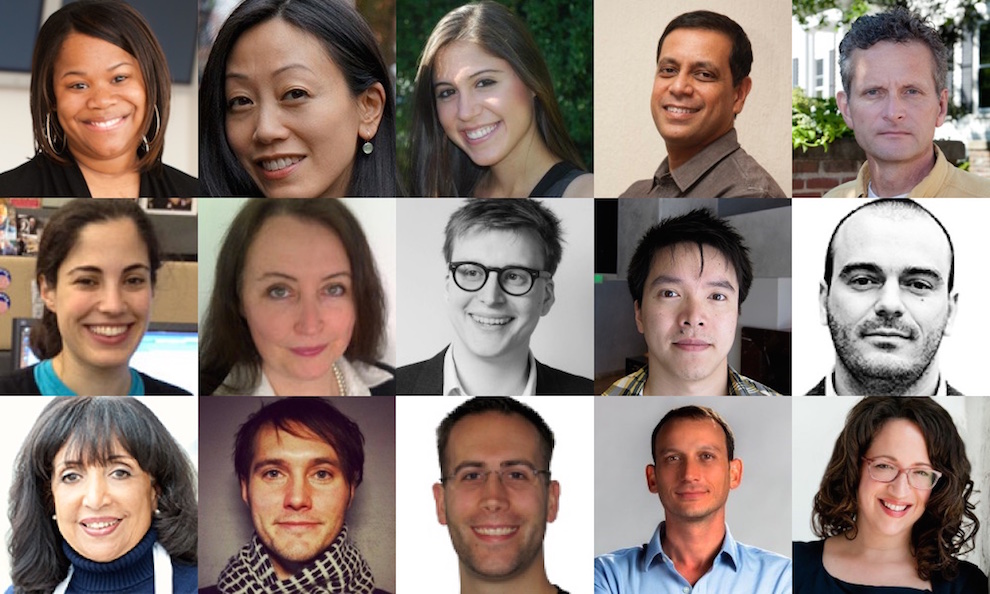
Do you have an idea to advance journalism? Can Harvard help?
If yes and yes, we’d like to hear from you. We’re opening applications for our Knight Visiting Nieman Fellowships, a chance to join us here at Harvard for up to 12 weeks of work on a special project. Nieman has nearly eight decades of experience with yearlong fellowships for journalists, but added these shorter stays to reflect the changing needs of the industry and the evolving cast of journalism influencers.
This is our fourth year welcoming visiting fellows, and our first in partnership with the Knight Foundation. In that time, we’ve had developers, editors, journalism professors, and others bring their research projects to Nieman. We’ve helped a foreign correspondent plan his epic seven-year walk across the globe and a Google editorial director develop a method for mapping future news events. Some of our fellows’ projects have won funding for further development. Many have been covered in Nieman Lab or Nieman Reports and reached large international audiences. This week, Nieman published an ebook documenting visiting fellow Amy Webb’s ambitious work on rewriting the future for journalism schools.
I asked Melody Kramer, who recently finished a terrific project with us on public media, if she would talk about her fellowship as a way of helping others who are considering applying. She recorded a short video describing her proposal, her application, her interview with us, and how she spent her two months at Nieman.
Ready to apply now? You can do that online. The deadline is October 31.
Our experience with visiting fellows has taught us a lot, but here are two ingredients we’ve learned are key to success:
Be certain when you apply that the longer Nieman Fellowship is not a better fit. After arriving here, one or two of our visiting fellows felt a broader inquiry would have been preferable to their tailored projects. Nearly 1,500 journalists have been awarded that fellowship since our founding in 1937 and it remains a remarkably transformative experience. Applications for that fellowship will not be due until December 1 for international journalists and January 31 for U.S. applicants.
But if you have an idea for what someone called the “new Nieman,” do let us know by October 31. I look forward to reading about it.
Ann Marie Lipinski is curator of the Nieman Foundation for Journalism at Harvard.